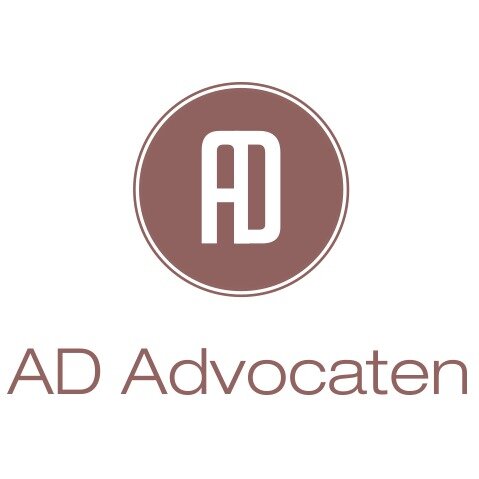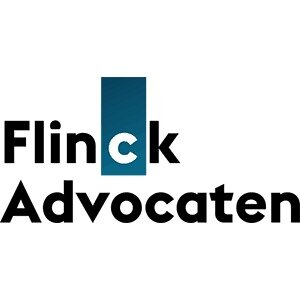Best Creditor Lawyers in Amsterdam
Share your needs with us, get contacted by law firms.
Free. Takes 2 min.
List of the best lawyers in Amsterdam, Netherlands
About Creditor Law in Amsterdam, Netherlands
The field of Creditor Law, also known as Insolvency Law, is primarily concerned with the rules and regulations regarding financial difficulties of both companies and individuals. In Amsterdam, like the rest of the Netherlands, this area of the law is governed by the Dutch Bankruptcy Act (Faillissementswet) and the Debt Restructuring Natural Persons Act (Wet schuldsanering natuurlijke personen). These laws lay down the procedures for bankruptcy, suspension of payment, and debt restructuring.
As the economic and financial heart of the Netherlands, understanding creditor law in Amsterdam is both crucial and complex due to frequent legislative changes and diverse international influences.
Why You May Need a Lawyer
Lawyers specialising in Creditor Law can assist with cases involving bankruptcy, debt recovery, enforcement of security rights, and restructuring. Legal advice might be needed in situations such as filing for bankruptcy, if you are being pursued by creditors, or if your company is undergoing a financial reconstruction. Furthermore, businesses may also require guidance on preventing financial distress or advice on winding up their operations legally.
Local Laws Overview
In the Netherlands, it's worth noting that it is a creditor-driven insolvency system, where creditors play a substantial role under the Dutch Bankruptcy Act. They can apply for bankruptcy if their claim is undisputed and due, with no requirement of insolvency. Furthermore, the legal framework provides remedies such as attachment (beslagrecht) which allows creditors to seize a debtor's assets even before a formal legal judgement is obtained.
The Debt Restructuring Natural Persons Act works as a last resort for highly indebted natural persons to achieve a debt-free future.
Frequently Asked Questions
What is the minimum amount for a debt to be claimable?
In the Netherlands, there is no legally defined minimum amount for a debt to be claimable. However, creditors do have to consider litigation costs and potential attorney fees.
Can creditors seize the debtor's assets without a court order?
Yes, under Dutch law, creditors can seize a debtor's assets before a court judgement through a mechanism called attachment (beslagrecht).
What is 'suspension of payment'?
'Suspension of payment' is a legal procedure where a company facing temporary financial problems can request the court for a short relief period where it is protected from its creditors.
Can personal debts be written off?
Yes, personal debts can be written off under the Debt Restructuring Natural Persons Act, provided that the debtor has attempted to satisfy his commitments for at least three years.
Is there any recourse if a debtor declares bankruptcy to evade payment?
Dutch law is very strict on fraudulent bankruptcy. If bankruptcy is declared with fraudulent intent, it may result in criminal charges.
Additional Resources
The official website of the Dutch Judiciary and the Supreme Court (Rechtspraak.nl) is a good resource for legislative documents related to Creditor Law. The Netherlands Bar Association (Advocatenorde.nl) also provides useful assistance in finding a specialized lawyer.
Next Steps
If you need legal assistance, find a lawyer who specializes in Creditor Law in Amsterdam. An initial consultation can often help clarify your situation, options, and potential outcomes. Additionally, depending on your situation, legal aid may be available through the Legal Aid Board (Rvr.org).
Lawzana helps you find the best lawyers and law firms in Amsterdam through a curated and pre-screened list of qualified legal professionals. Our platform offers rankings and detailed profiles of attorneys and law firms, allowing you to compare based on practice areas, including Creditor, experience, and client feedback.
Each profile includes a description of the firm's areas of practice, client reviews, team members and partners, year of establishment, spoken languages, office locations, contact information, social media presence, and any published articles or resources. Most firms on our platform speak English and are experienced in both local and international legal matters.
Get a quote from top-rated law firms in Amsterdam, Netherlands — quickly, securely, and without unnecessary hassle.
Disclaimer:
The information provided on this page is for general informational purposes only and does not constitute legal advice. While we strive to ensure the accuracy and relevance of the content, legal information may change over time, and interpretations of the law can vary. You should always consult with a qualified legal professional for advice specific to your situation.
We disclaim all liability for actions taken or not taken based on the content of this page. If you believe any information is incorrect or outdated, please contact us, and we will review and update it where appropriate.









